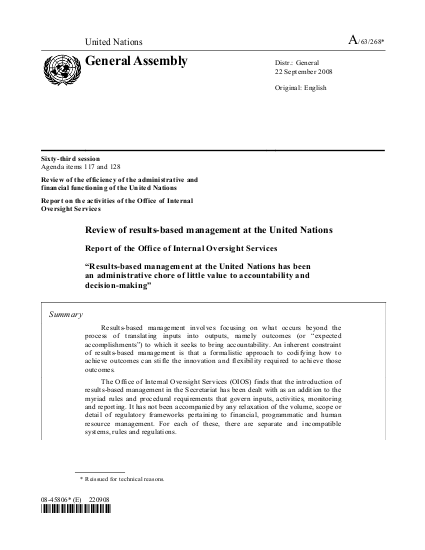
Results-based management involves focusing on what occurs beyond the process of translating inputs into outputs, namely outcomes (or “expected accomplishments”) to which it seeks to bring accountability. An inherent constraint of results-based management is that a formalistic approach to codifying how to achieve outcomes can stifle the innovation and flexibility required to achieve those outcomes.
The Office of Internal Oversight Services (OIOS) finds that the introduction of results-based management in the Secretariat has been dealt with as an addition to the myriad rules and procedural requirements that govern inputs, activities, monitoring and reporting. It has not been accompanied by any relaxation of the volume, scope or detail of regulatory frameworks pertaining to financial, programmatic and human resource management. For each of these, there are separate and incompatible systems, rules and regulations.